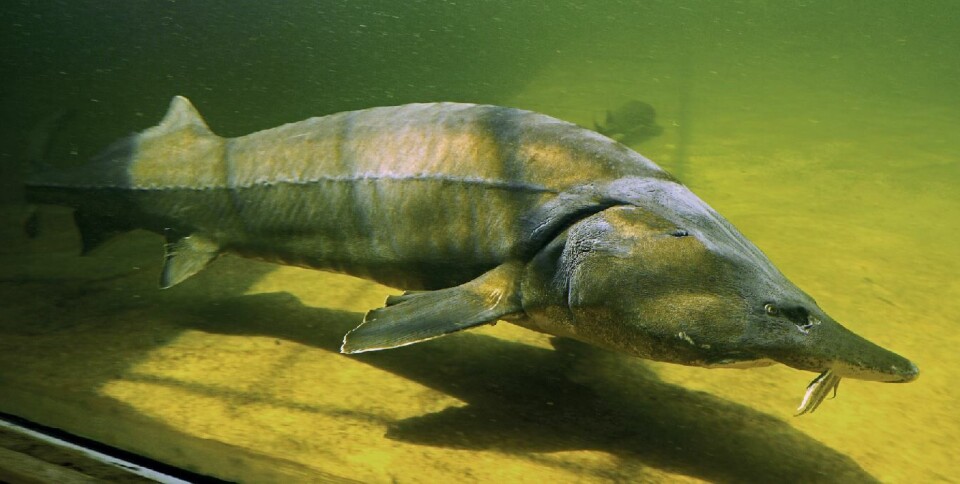
Caviar farm gets the roe-ahead
Scottish-produced caviar could be on the menu in under three years following a decision by Argyll and Bute planners yesterday to approve the development of a sturgeon farm on the Ardkinglas estate at Cairndow, at the head of Loch Fyne.
The Fynest Caviar Company Ltd plans to eventually produce 50 tonnes of sturgeon a year in the on-land facility, although anticipates starting at only 10% of capacity.
The farm is the brainchild of London property developer and caviar lover Trevor Knight, one of three directors of the Fynest Caviar Company, along with chartered accountants Fraser Niven, from Edinburgh, and Stephen O’Brien.

“We got permission granted yesterday,” said Knight, speaking from France. “When I’m back in England next week I’ll start to organise things for moving forward. We’ve got to make sure all of our other bits fall into place now. The planning permission was just part of that, but a big part, obviously.
“It’ll be the second half of the year [before building begins]. We’ve got to sort out more detailed planning now. We wouldn’t go in for detailed planning permission because it was so unpredictable as to whether we would get our consent or not.
“The biggest obstacle is out of the way and that is the buildings being consented.”
Knight said the company would now be “dealing with the business elements of what we’re intending to do”.
He added: “Banks might have a slightly different take on things now, with Brexit and the uncertainties that might bring – we don’t know – but we’ll start those conversations in the next month or so.
“It can only be a good thing for Scotland, having another business coming in.”
Broodstock unit
Plans include an onsite broodstock unit, a nursery and an on-growing area. The fish will be moved to depuration tanks at seven or eight years old, when they should be about a metre long and weight between 15-22kg.
The fish will then be slaughtered and the roe will be canned on site, while the rest of the carcass will be filleted.
To avoid an eight-year wait for his first caviar, Knight intends to buy fish of various ages from farms abroad.
Buying fish up to six
“We are bringing fish of every age up until six years old, and then they’ll be in our facility for two to three years before the first run of fish are processed,” he said.
“From the first year of fish we’ll be breeding our own fingerlings as well.”
Knight said Scottish caviar could be available in two and a half years, but more likely three.
A year of construction
“We’ve got a year of construction and setting up the workings of the plant, then we bring in our fish and we need to settle those in for a year, year and a half, and we start ramping up our production in a very gentle way. We’re not looking to be at full production for four to five years.”
Knight said the farm was expected to employ up to a dozen people when it reached full capacity.
Animal rights group People for the Ethical Treatment of Animals (PETA) had objected to the plans for the farm, and New York-based Scottish actor and PETA supporter Alan Cumming wrote a letter to the council even sent some vegan caviar – made from seaweed and served at the BAFTAs – for officials to taste.























































